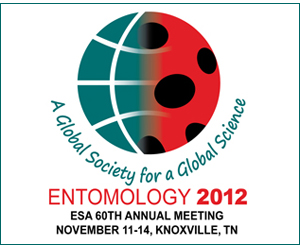North Central Branch Annual Meeting Online Program
Effect of alcohol concentrations in reconstituted human blood on fecundity of bed bugs (Cimex lectularius L.)
Monday, June 4, 2012: 9:39 AM
Regents AB (Embassy Suites)
Recent resurgence in bed bugs (Cimex lectularius) infestation worldwide has created a need for renewed research in the control, biology, behavior and ecology of these critters. At present majority of the research conducted focus on insecticides resistance and control methods, while a small percent focus on other areas of interest. Humans consume alcohol on a regular basis at social events such as, parties, functions and many other gatherings. In humans alcohol is transported and stored in the blood, blood alcohol level (BAL) impact individuals differently. In the United States, the legal limit is 0.08% BAL. The present research would focus on feeding alcohol adulterated reconstituted human blood (RHB) to bed bugs and observe its impact on number of eggs produced and whether or not adult bed bugs feeding to repletion. These parameters would be compared against the same for bed bugs fed on unadulterated RHB. There was a significant reduction on amount of adulterated RHB consumed as the BAL increased. This resulted in a reduction in the number of eggs produced.


